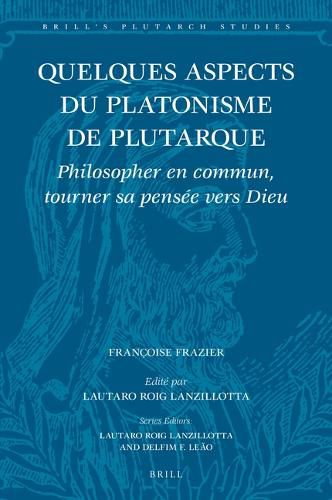Readings Newsletter
Become a Readings Member to make your shopping experience even easier.
Sign in or sign up for free!
You’re not far away from qualifying for FREE standard shipping within Australia
You’ve qualified for FREE standard shipping within Australia
The cart is loading…






Francoise Frazier’s Quelques aspects du platonisme de Plutarque: Philosopher en commun, Tourner sa pensee vers Dieu includes 20 essays on several philosophical tractates in Plutarch’s Moralia. Interesting both for Classists and Historians of Religion alike, the chapters provide an in-depth interpretation of several essential aspects of Plutarch’s philosophical dialogues that pays special heed both to the divine and the communication between God and humans. The book includes three sections. While the first is mainly concerned with Plutarch’s Amatorius, the second focuses on Plutarch’s relationship to Plato, especially in his myths of the afterlife. The third part, finally, deals with an important investigation that occupied Professor Frazier lately, namely the concept of pistis in the religious context of the first centuries CE.
$9.00 standard shipping within Australia
FREE standard shipping within Australia for orders over $100.00
Express & International shipping calculated at checkout
Francoise Frazier’s Quelques aspects du platonisme de Plutarque: Philosopher en commun, Tourner sa pensee vers Dieu includes 20 essays on several philosophical tractates in Plutarch’s Moralia. Interesting both for Classists and Historians of Religion alike, the chapters provide an in-depth interpretation of several essential aspects of Plutarch’s philosophical dialogues that pays special heed both to the divine and the communication between God and humans. The book includes three sections. While the first is mainly concerned with Plutarch’s Amatorius, the second focuses on Plutarch’s relationship to Plato, especially in his myths of the afterlife. The third part, finally, deals with an important investigation that occupied Professor Frazier lately, namely the concept of pistis in the religious context of the first centuries CE.